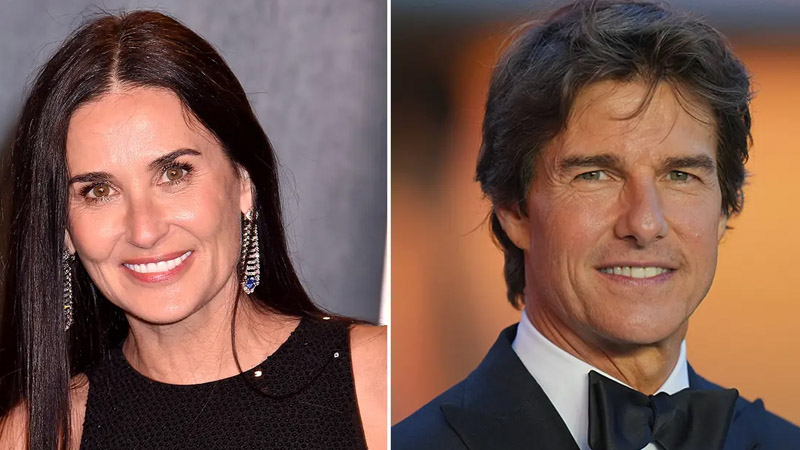Demi Moore has never shied away from speaking out about the sexism she encountered in Hollywood, and she recently opened up about a particularly unsettling experience from her time working on the 1992 film A Few Good Men alongside Tom Cruise. In a candid interview with the Los Angeles Times, Moore, now 61, reflected on an incident where a studio executive pushed for a sex scene between her character and Cruise’s.
Moore recalled that despite there being no romantic subplot in the film, the executive felt that her character should sleep with Cruise’s. Thankfully, screenwriter Aaron Sorkin stood up for her and denied the request. However, the executive’s response was both shocking and revealing. “Well, then why did we hire Demi Moore?” Moore remembered the exec saying, underscoring the shallow expectations often placed on women in the industry.
Moore reflected on how the incident illustrated the ingrained sexism of that era in Hollywood. “I think that it’s how they were conditioned,” she said, noting that women in films were frequently expected to serve as love interests or be defined by their relationships with men. Her experience exemplified how the film industry often reduced female roles to romantic or sexual components, regardless of their narrative purpose.
This wasn’t the first time the situation had been publicly addressed. In a 2011 interview with The Hollywood Reporter, Sorkin himself recounted the moment the studio executive questioned why Moore’s character needed to be a woman if there wasn’t going to be a romantic angle. “If Tom Cruise and Demi Moore aren’t going to sleep with each other, why is Demi Moore a woman?” the executive reportedly asked.
Sorkin’s response was simple but powerful: “I said the obvious answer: women have purposes other than to sleep with Tom Cruise.” Moore’s recollection of this incident serves as a reminder of the pervasive sexism that has long existed in Hollywood. Her ability to speak out about these experiences highlights not only her personal resilience but also the need for ongoing progress in how women are viewed and treated in the entertainment industry.

